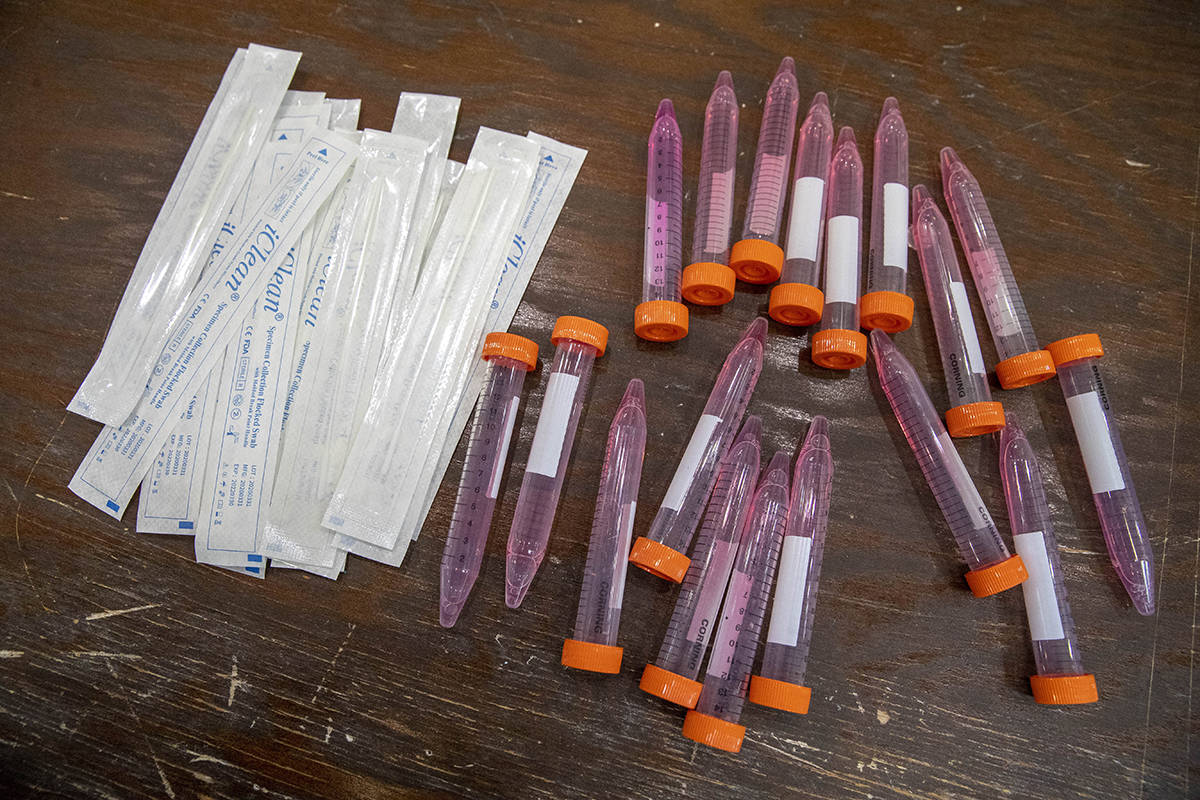Low number of coronavirus tests in Nevada prisons questioned
Less than half a percent of Nevada prisoners have been tested for the coronavirus, while the state Department of Corrections points to no positive results as proof it’s adequately handling the pandemic.
But advocates question if so few prisoners are being tested, how is the department sure no one is infected?
Of the 39 states that have reported overall testing information — and not just the number of positive cases — only three had tested a lower percentage of inmates than Nevada as of Monday, according to information from the department and data reported by The Associated Press and The Marshall Project. Of those states, nine have tested fewer overall inmates than Nevada.
As of Monday, 56 of Nevada’s nearly 12,500 inmates had been tested, according to corrections spokesman Scott Kelley.
That small number reveals a bigger problem, said Randolph Fiedler, president of Nevada Attorneys for Criminal Justice.
“They’re not really doing testing in a way that inspires confidence in those zero number of cases,” he said.
A ‘hard stance’
Sherrie Royster, legal director for the American Civil Liberties Union of Nevada, said that while it would be “absolutely amazing” for no prisoners in Nevada to be sick, she believes inmates have been exposed, especially considering that 16 staff members at six facilities have tested positive.
“I just hope that these numbers are accurate in terms of zero infection,” Royster said. “Given the hard stance that (the Department of Corrections) is taking, I hope that it stays that way.”
When asked for comment Tuesday, Kelley listed how the department has been preventing spread of the virus, including suspending visitation, screening people entering facilities and requiring staff to wear masks within 6 feet of inmates.
“This has resulted in zero offenders having tested positive for COVID-19, a fact that NDOC is proud of,” Kelley said in the emailed statement.
Kelley also outlined what the department is doing when a prisoner reports feeling sick.
He said the inmate is isolated “pending results of their test,” the department identifies everyone the inmate had contact with, masks are given to “anyone requiring medical care,” and if inmates test positive or are waiting on results, they must wear masks if they are being escorted from isolation. If an inmate tests positive for the virus, “all offender movement” within that unit and from the facility would stop, Kelley said.
As of Monday, 82 department employees had been tested — 37 of whom were tested by the department itself — and 16 have tested positive, Kelley said in an email.
Kelley declined to release staffing numbers or say how many inmates have been tested at each facility, citing “safety, security and operational concerns.”
The department on Tuesday also declined to fulfill a public records request from the Las Vegas Review-Journal regarding documents showing the number of inmates tested, citing personal information in the records.
Benjamin Lipman, vice president of legal affairs and general counsel for the Review-Journal, said the records should be redacted and then released.
“If there truly is confidential information in public records, the Nevada Public Records Act requires the Department of Corrections to provide the public records with the confidential information redacted, not use the existence of some confidential information as an improper excuse to withhold entire documents,” he said.
The department first publicly acknowledged how many inmates had been tested during a meeting of the Nevada Sentencing Commission on April 29, when corrections Director Charles Daniels announced that 39 inmates had received tests. Before that, the department declined to tell Review-Journal reporters how many inmates had been tested.
According to data from The Marshall Project and The Associated Press, 11 states had not said how many inmates had been tested as of the first week of May.
‘Us versus them’
Royster said the ACLU sent letters to the department on March 13 and March 23 asking for information about the virus in the prison system.
She said she eventually received a response from the department, but it didn’t answer any of the ACLU’s questions. The response came March 27, a day after the ACLU and other advocacy groups sent a letter about the pandemic to nearly two dozen public agencies within the criminal justice system, including the prisons.
“The biggest failure here has been the lack of communication,” Royster said, adding that the department has “made this into an ‘us versus them’ situation.”
Moving forward, Royster said she would like Daniels to make good on comments he has made during Nevada Sentencing Commission hearings about sitting down with the ACLU and other groups to “come up with a plan.”
“One thing that was pretty clear hearing Director Daniels speak, was that it was almost defensive in terms of what (the department) has done,” she said. “We are not working against each other.”
Nevada Attorneys for Criminal Justice was one of the organizations that signed the March 26 letter with the ACLU. On Tuesday, Fiedler said he wants to see more transparency from the prison system.
“Really we can’t confidently say we know what’s going on in the prisons without more testing,” he said.
Now that the coronavirus pandemic has been in Nevada for nearly two months, Royster said, it’s time for the prison system to answer more questions about how it’s protecting inmates and who is being tested.
“It shouldn’t be a secret,” she said.
Contact Katelyn Newberg at knewberg@reviewjournal.com or 702-383-0240. Follow @k_newberg on Twitter.


















